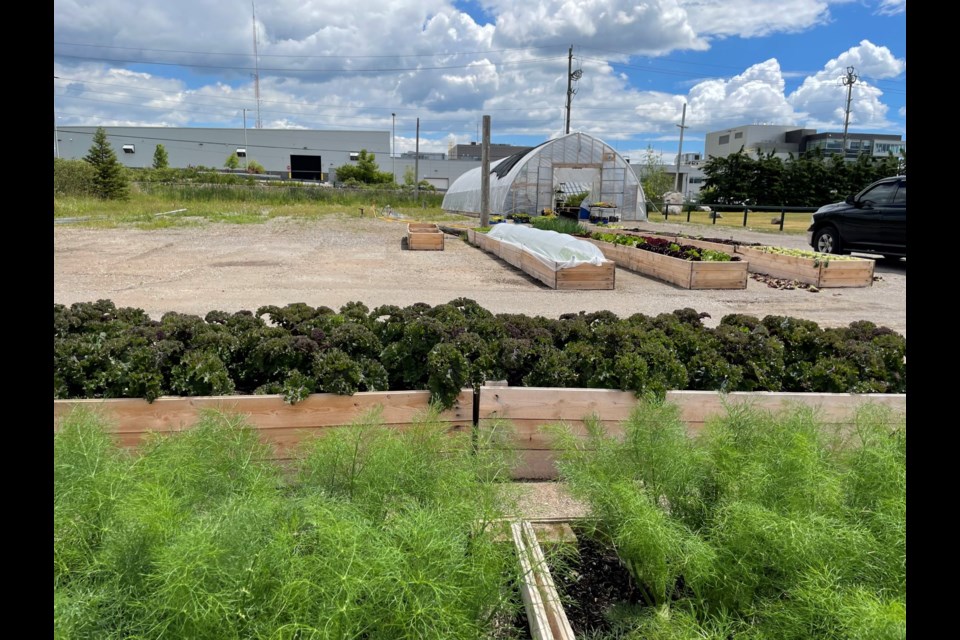Most people have heard of the issue of food insecurity but few understand how it is addressed and what other societal problems it intersects with. But some community members in Sault Ste. Marie are working hard to make a difference.
Harvest Algoma is the food security division of the local United Way. It seeks to address food insecurity as one piece of the larger puzzle of poverty.
Food Insecurity
United Way Sault Ste. Marie & Algoma District offers a variety of services like a medical travel grant and tax preparation for low-income earners. However, Carson Beauregard explains, in 2018, they saw the need to open a food security branch.
“One of the reasons this project was initiated was because the United Way was being offered shipments of food from lots of organizations, but as a community, we didn’t have the capacity to receive these donations," Beauregard said. “So there was a push from the board of directors to develop a food security project so we could receive these donations.”
Beauregard is the Food Production Coordinator at Harvest Algoma and has been working in the organization not long after its inauguration.
The Algoma University Community, Economic and Social Development graduate explains that Harvest Algoma is like a food bank for food banks:
“We developed some partnerships with a few grocery stores in town and we pick up food that would otherwise be thrown away. Food Basics supports us, Rome’s supports us, and Metro supports us.”
The registered charity has cold storage, warehouse capacity and an in-house chef who prepares meals that can be frozen.
It then distributes the food to over forty-five organizations in Northern Ontario. These include the Metis Nation of Ontario, Sault College Food Bank, the Soup Kitchen and Pauline’s Place.
“People should be able to understand that local food banks can only operate because of food donations from the community,” he said. “And without the support, there would be people from the community who would suffer.”
Only A “Band Aid Solution”
Despite this, Beauregard stressed that his work is “effectively a band-aid solution” to systemic hunger.
Longer-term results, he said, will come from poverty reduction, which other divisions of United Way also address.
According to a study by the Tamarack Institute; climate change, poverty and poor distribution of food are tied.
“Addressing climate change without addressing poverty, for instance, can impact social stability while missing out on opportunities to put forward policies and actions that can improve both. Alternatively, taking a whole-of-society approach to addressing resilience, climate change and poverty reduction can help reduce vulnerability and make Canada stronger.”
The study highlights Harvest Algoma’s role in rescuing food, which keeps surplus food within the region, which in turn reduces the carbon footprint thanks to the lowered need for food transportation.
Affordable Groceries
In a similar vein, the Gore St.- based Grocer 4 Good was created to address two juxtaposing objectives.
“(It's purpose is) to provide paid employment and skills development for those facing barriers to employment (primarily those with an Autism Spectrum Disorder, or facing other intellectual disabilities) and to provide much needed daily necessities to those on fixed incomes in the downtown core who may not have access to fresh food,” said founder and president of the Board of Directors Lisa Vezeau-Allen.
It is a registered charity that sells food items at an affordable rate. Vezeau-Allen works entirely on a voluntary basis.
It also provides employment and co-op opportunities for community members with intellectual disabilities.
Like Harvest Algoma, Grocer 4 Good was built to alleviate a society-wide need, linked to the economic system.
When the downtown Walmart closed in 2019, experts warned that a ‘food ghetto’ may be created — low-income residents would be forced to pay bus or taxi fares to get to other stories in other parts of town.
“One of my life's goals was to create something that could employ our folks and that being said, I reached a point in my life that I was able to initiate this start-up,” said Vezeau-Allen.
“When the announcement was released regarding Walmart, it was the catalyst for Grocer 4 Good. Fresh food needs to be accessible and as well the model of a grocery store in a smaller scale led to the reasoning that it could be a perfect model for training and employment for those with disabilities and barriers based on the various tasks required.”
Grocer 4 Good uses revenue from sales plus funding from grants and donations to stock its isles.
Room for Optimism
Despite the pandemic leading to major layoffs and growing insecurity for some, food security organizations have enjoyed some big victories.
Harvest Algoma recently hit its 500,000 lbs of food donation milestone.
Meanwhile, Vezeau-Allen is thankful for the dedicated volunteers who have been hard at work since the reopening after the brunt of the pandemic.
